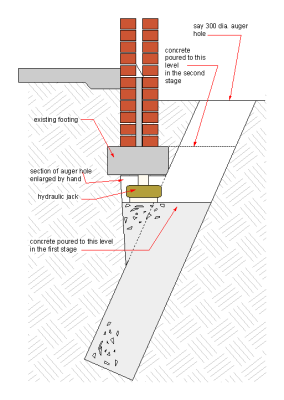Inspection of septic tanks and other domestic wastewater treatment systems.
Introduction
A new registration and inspection regime was introduced in June 2012 for domestic waste water treatment systems, such as septic tanks. The new regime aims to protect ground and surface water quality from the risks posed by malfunctioning systems. It is being introduced under the Water Services (Amendment) Act 2012 with further detail in the Water Services Acts 2007 and 2012 (Domestic Waste Water Treatment Systems) Regulations 2012.
Rules
Registration
If you have a septic tank or similar system, you must register its details with your local authority and pay a registration fee. You will have to re-register after 5 years but you will not have to pay a fee for the second or subsequent registrations. The registration system was launched on 26 June 2012 and the deadline for registration is 1 February 2013 – see ‘How to apply’ below.
The local authorities will compile a national register, which will be publicly available, and the Environmental Protection Agency (EPA) will develop a national inspection plan.
Maintenance
Owners of domestic wastewater treatment systems need to:
- Know where their septic tank is located
- Operate and maintain the system so it is fit for purpose and fully operational
- Ensure that the system cannot pollute the environment by discharging or leaking waste anywhere it is not supposed to, that is, into the ground or any water source
- Ensure that roof water or surface water run-off cannot enter a domestic waste water treatment system
- De-sludge the system at intervals appropriate to the tank capacity and the number of people resident in the premises connected to it, or as recommended by the system’s manufacturer. De-sludging should be carried out by an authorised contractor. You should keep the receipt from the contractor for 5 years.
Inspections
Local authorities will arrange for inspections to be carried out. The inspectors will be appointed and approved by the EPA. They will have to carry identification and show it to householders on request.
Inspections will start in 2013 and will concentrate on areas with high risk to the environment and public health – where drinking water sources or habitats are at risk from wastewater discharges. They will also be carried out in areas of lower risk, but at a lower rate. Your local authority will notify you if your domestic wastewater treatment system is to be inspected.
If the inspector finds that your system is working properly and being maintained correctly, you need take no extra action. Otherwise you will get an advisory notice from the local authority, requiring you to improve the maintenance of your system or to upgrade or remediate it. Any remediation work required will be based on factors such as the nature of the problem, the extent of risk to public health or the environment, existing site size and the hydrological and geological conditions present.
You may be able to get a grant to help with the cost of the work required. The grant is means-tested and you must have registered by 1 February 2013 to be eligible.
Standards
If you have a septic tank or similar domestic wastewater treatment system, you already have a duty of care (under the Water Services Act 2007) to ensure that your treatment system does not cause a risk to human health or the environment or create a nuisance through odours. The 2012 Act adds to the existing duty of care provisions.
The EPA’s 2009 Code of Practice on wastewater treatment systems for single houses sets out the most up-to-date standards. However, these will not be applied to older systems. The 2012 Regulations define performance standards, including maintenance and de-sludging requirements.
Rates
The registration fee is €50. (It was €5 up to 28 September 2012.)
There will be no inspection charge.
The costs of any remediation will depend on the extent and nature of the work required.
How to apply
You must register your system by 1 February 2013 and there are 3 ways to do this:
- Online at www.protectourwater.ie
- By post: forms are available in city/county councils, libraries and Citizens Information Centres or by calling LoCall
 1890 800 800 for information. Cheques should be made payable to ‘Protect Our Water’ and posted to Protect our Water, PO Box 12204, Dublin 7.
1890 800 800 for information. Cheques should be made payable to ‘Protect Our Water’ and posted to Protect our Water, PO Box 12204, Dublin 7.
- At your local authority office (there is no administration fee)
Further information
The Department of the Environment, Community and Local Government has published an information note (pdf) on the legislation and the Environmental Protection Agency (EPA) has published a set of Frequently Asked Questions.
There is also a detailed set of FAQs on protectourwater.ie.
You can contact your local authority or the Environmental Protection Agency for more information.


